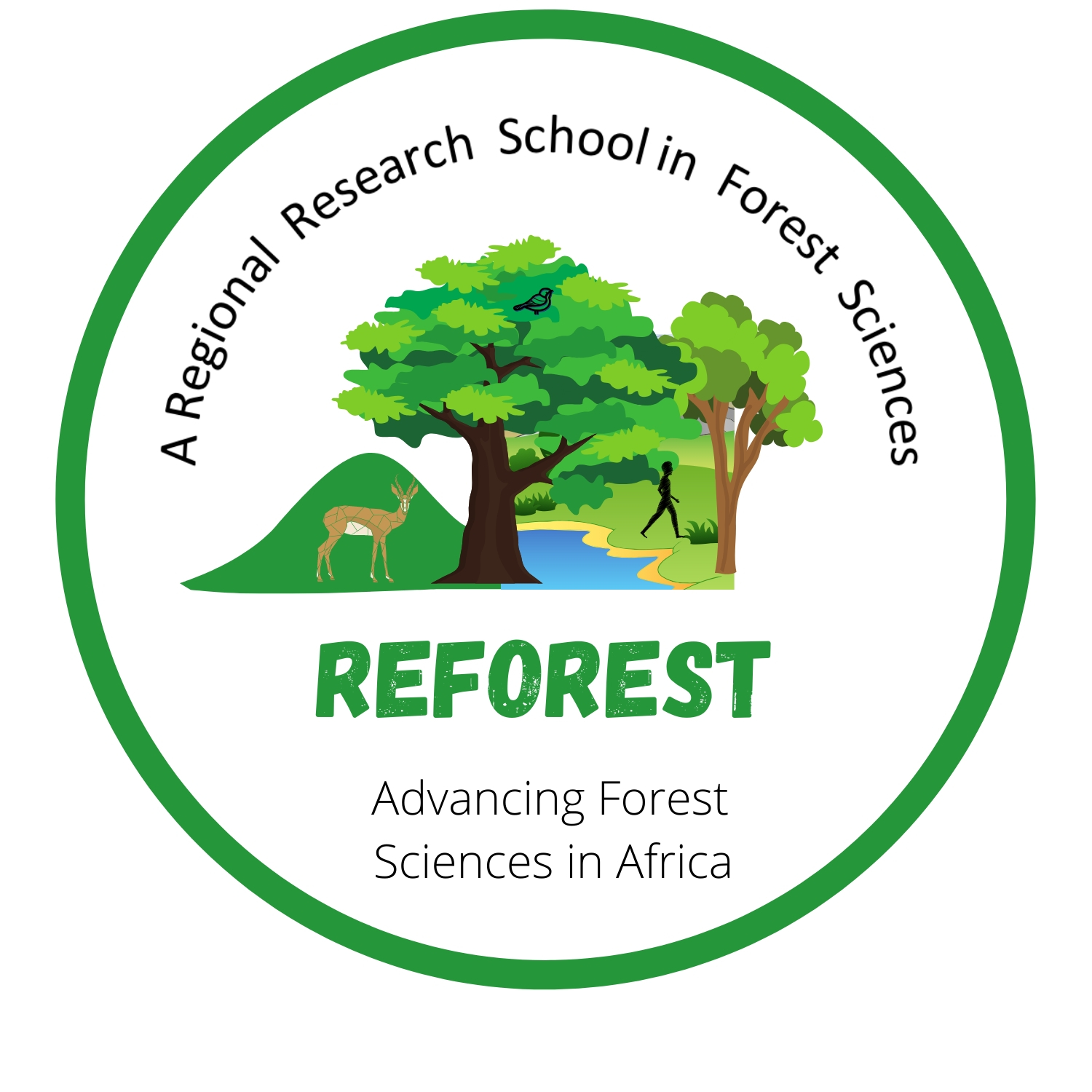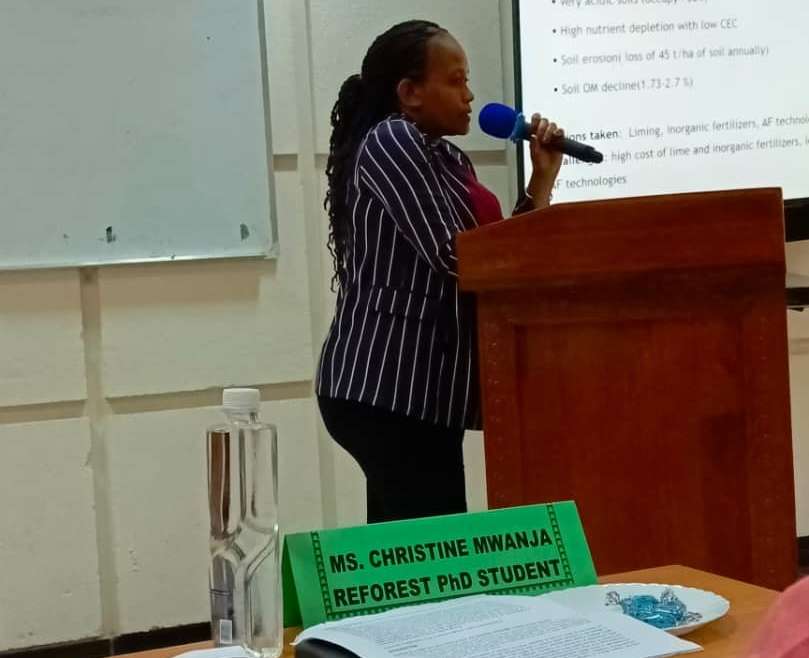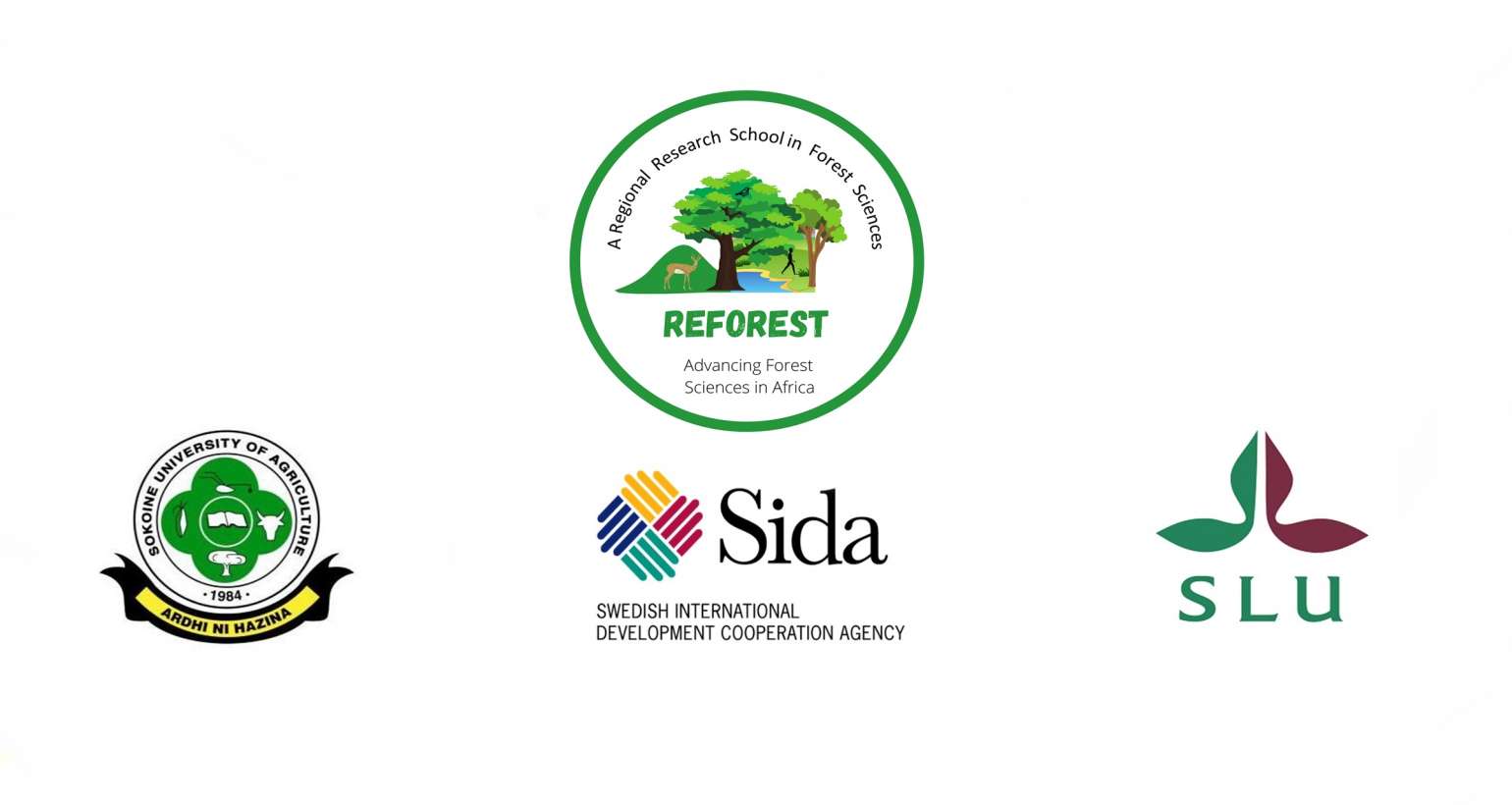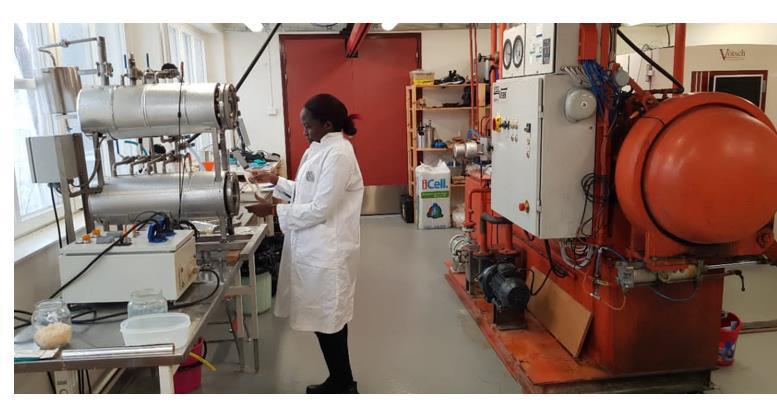Low agricultural productivity and a decline in fuelwood resources are serious constraints for subsistence smallholder farmers in the Sub-Saharan Africa region, including Rwanda. Producing biochar in gasifier cookstoves and using it in agriculture can possibly address these constraints. It is known from controlled trials that biochar improves the fertility of tropical soils. Through participatory on-farm experiments, we have shown that it is possible in real life to achieve multiple benefits from biochar production and use. I presented the findings from my research at two refereed seminars, conducted by the REFOREST Programme.
Refereed PhD seminars
My PhD research is focused on “Agroforestry for bioenergy and improved soil fertility in two agro ecological zones of Rwanda. l presented the findings on Gasifier use, biochar production and use among smallholder farmers in Rwanda at two seminars for PhD students. The research I carried out took one year and was in two agro- ecological sites with distinct farming systems in Rwanda. I undertook research on sixty (60) households at each of the two study sites. Each household was provided with top-lit-up-draft (TLUD) gasifier stove branded as “GASTOV” developed by the Kenya Industrial Research and Development Institute (KIRDI) and KARUNDURA stove developed by ENEDOM Company in Rwanda.
Farmers were trained on cookstove use and on application of biochar to soil. This integrated approach combines biochar production with bioenergy generation. It offers significant scientific contributions in terms of improving soil fertility, increasing bioenergy output, mitigating climate by sequestering atmospheric carbon in the soil and reducing greenhouse gas emissions associated with traditional cooking methods, thereby improving the overall well-being and socio-economic stability of rural communities.
Presenting my PhD findings to the academicians played a crucial role in disseminating knowledge by sharing my original research contributions with the academic community. It provided a valuable opportunity to receive constructive feedback and suggestions, helping to refine and enhance my work.




